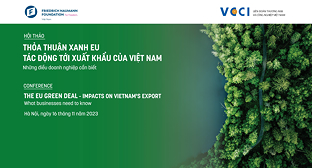Economics of Subsidy
26/08/2008 12:00
Sanjay Pandey
(Assistant Professor (Law) National Law University, Jodhpur. Author expresses indebtedness to Radhika Pandey for her constructive suggestions and editing.)
The center-point to the theory of international trade is the principle of comparative advantage in production and marketing of goods due to more efficient and specialized production of those goods and services on account of various reasons like operation of economies of scale and least operational cost in marketing and distribution. In a comparative advantage situation both the countries, importing and exporting, benefit as their real income and standard-of-living increases. The natural comparative advantage of a country in any goods or services may be disturbed in two ways. First, the government by providing any budgetary or non-budgetary financial support or concessions may reduce the production and/or distribution cost of the domestic producer so as to neutralize the advantage of the foreign producers. Second, the government may put protective wall in the form of tariff barrier by imposing import duties on the goods and services in which the country has a negative comparative advantage, which also would neutralize the advantage enjoyed by the foreign producers.
In ordinary parlance subsidy as a manipulative support system is structured in a country by way of fiscal laws relating to macro-economic management through the budgetary support process. It is that branch of international trade law, fact file of which lies in pure economics. Many attempts have been made since the inception of GATT 1947 to construct subsidy laws that do not inhibit the flow of trade between nations. However, the task of determining how to structure subsidy law has always been found to be inherently difficult because the definition of subsidy has never been understood as detached from political economy. Subsidy is a protectionist device, which protects the interest of home producer on various considerations, but it does not protect the interest of the consumer. In the aftermath of WTO agreement on subsidy it has become a matter of concern to define subsidy in absence of which even countervailing duties could be protectionist. In the presence of ambiguity it is certain that national producers would influence the government and use them for that purpose, regardless of any injury that could result to external competitors. When subsidy laws are ambiguous and avoidance of a certain definition of subsidy is permissible as also the countervailability such as the case with U.S. law throughout this century, the result would lead to more protectionism and more distortion than there would have been with no law at all.
The most important objective of this paper is to trace a definition of subsidy, which shall encompass all legal requirements of precision, definitiveness and interpretative conclusiveness.
Các tin khác
- The Dispute Settlement Crisis in the World Trade Organization: Causes and Cures (16/03/2018)
- Modification of trade defence rules regarding non-market economy costs and prices (23/02/2018)
- Research Paper: Options for Disciplining the Use of Trade Remedies in Clean Energy Technologies (03/08/2017)
- Addressing the rise of Trade Remedies against Environmental Goods (03/08/2017)
- Anti-dumping Retaliation - —A Common Threat to International Trade (15/11/2016)
 Home
Home
 About Us
About Us




















